How do I declutter my study room?
Do you look at your study and see chaos? Don’t worry, we have the right tips to transform your space into an organized oasis. Let’s find How do I declutter my study room?
Home offices and study rooms are often places of creativity and productivity, but when clutter takes over, working can become a challenge. The first step in decluttering is sorting and organizing. Go through your documents, books and items and decide what you really need. A minimalist approach can work wonders to free up space and create an inspiring work atmosphere.
Next, it is important to organize the study room with Shelves, drawers, and storage boxes can help keep everything in its place. By creating order, you also create mental clarity, which has a positive impact on your productivity. Set clear areas for different activities, be it working on the computer, reading books, or creative projects so lets start with How do I declutter my study room.

Why Is Decluttering Important & How do I declutter my study room?
Cleaning up the space where you work regularly will help increase your productivity and will enhance your work quality.It brings new energy to your environment thus motivating you to work with new enthusiasm.
The benefits of decluttering also extend to efficiency. A tidy study room allows you to find the documents and materials you’re looking for more quickly, saving time and minimizing frustration. Fewer distractions due to clutter also means increased concentration on the actual work.
Tidying up your workspace simplifies organizing things.You can easily handle lesser things on hand as compared to a lot of mess.This will also bring positivity in your attitude.
Decluttering helps you improve your focus at work and you can think of better ideas at work.It will help you develop and progress in your work.
Additionally, by cleaning up regularly will bring a discipline in you.You will develop positive habits. The discipline of keeping your space in order often carries over into other areas of life, be it organizing your time or tending to personal matters.
In short: tidying up your study is not just an external change, but a key to a more efficient, creative and stress-free work environment. Start today to experience the benefits of a tidy home office!
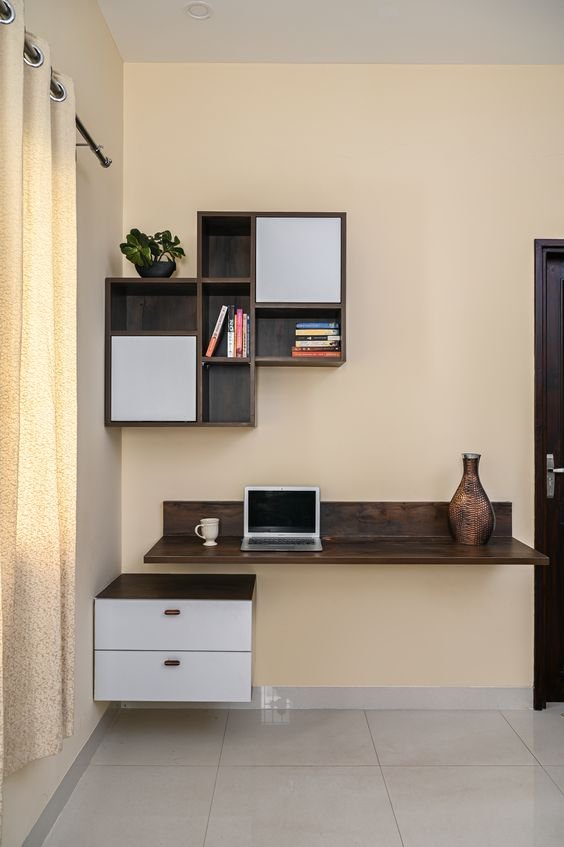
Identifying What to Keep and What to Discard
Figuring out what to keep and what to get rid of is crucial to effectively decluttering your Study room. Start by taking a critical look at each item. Ask yourself: When was the last time I actually did something with it? Is there any practical use or sentimental value? If not, then it might be time to say goodbye.
You can start decluttering by firstly cleaning the specific area and then organizing things like books, document, files in form of groups.A helpful rule is that if you haven’t used an item in the last six months, it’s unlikely you’ll need it anytime soon. Check the quality of things if they are broken or torn out then you might not need them anymore.Remember that letting go of things not only creates physical space but also frees the mind. It’s a liberating process that creates space for new things and positively influences the energy in your study.
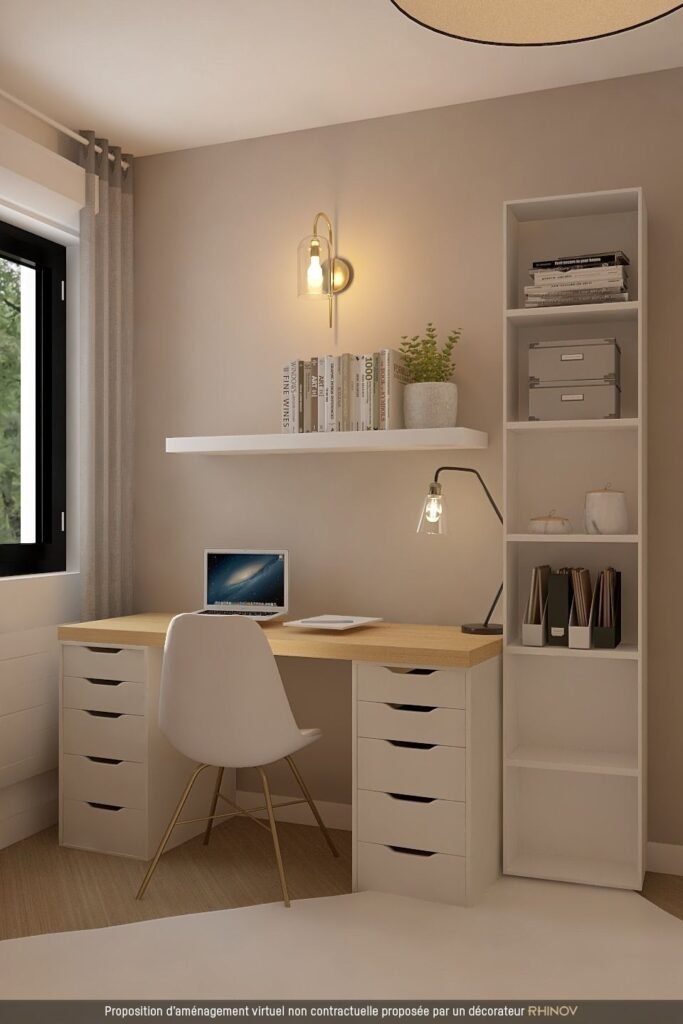
Organizational Tips for Your Study Room
After you’ve decluttered, it’s time to optimally organize your Study room Here are some practical tips:
Shelves and Storage Boxes: You can keep your things in an organized manner in shelves and storage boxes.Dedicate these shelves and storage boxes to specific items in order to avoid clutter.
Desk Organization: Fancy and cute desk organizers are nowadays available that can make your task much easy.You can keep pens, pencils, highlighters and many more stuff in these organizers.This will help you in quick access to things you need in time.
Digital organization: Transfer the spirit of order to your digital world. Organize files on your computer sensibly, delete unnecessary things and save important documents.
Clear zones: Create clear zones for different activities. If possible, separate the work area from the leisure area to create a clear boundary.
Weekly Review:This a good idea to avoid clutter at your workplace.You can regularly dispose off things you don’t need anymore.Thus you will end up having neat and tidy workspace.
With these organization tips, you can ensure that your study is not only tidy, but also used functionally and efficiently. A well-organized space promotes productivity and minimizes stress by making everything you need easily accessible.
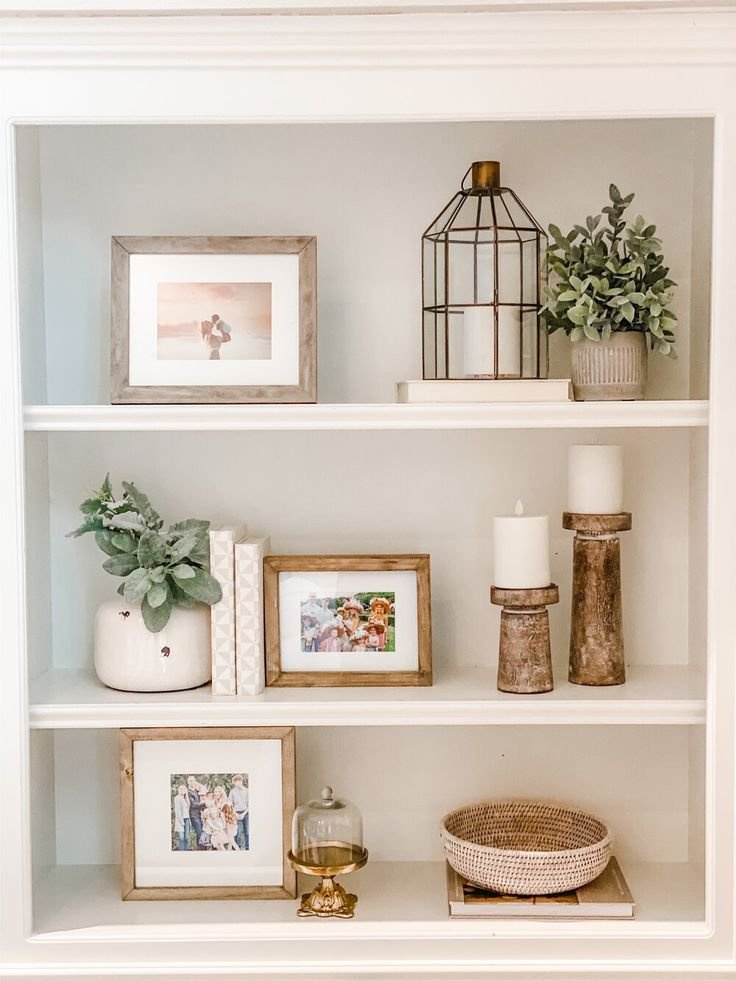
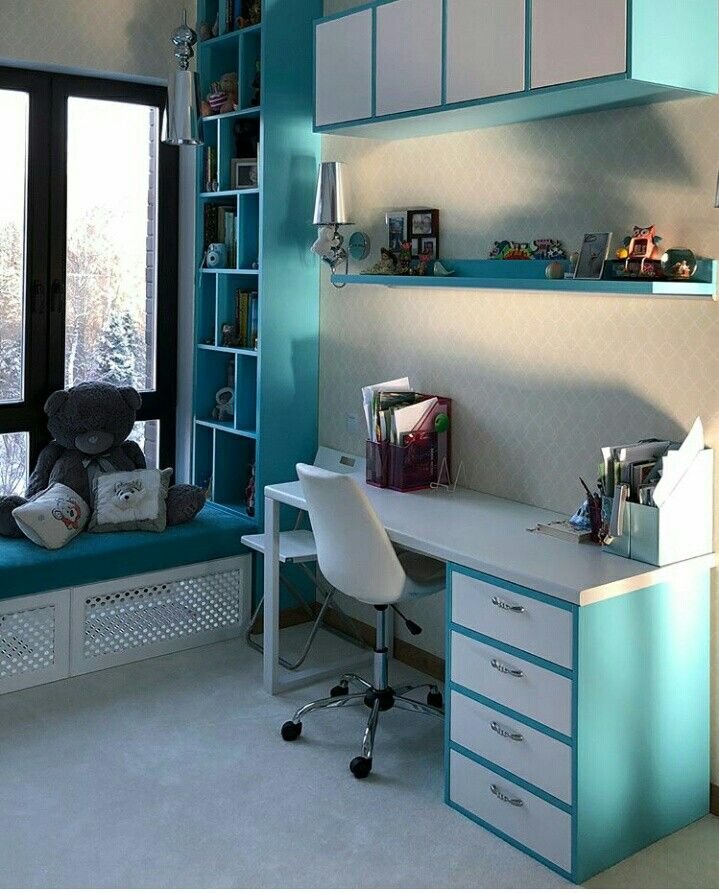
Utilizing Storage Options
Use of storage options
Smart use of storage options is crucial to effectively use the limited space in your study room. Here are some tips on how to get the most out of storage solutions:
Vertical Storage: You can utilize vertical space above your desk by installing shelves that can be used to keep files, documents etc.Peg board can also be mounted on the wall that can hold stationary items and other office supplies.For metal items like scissors, paper clips etc you can mound magnetic strips to keep things organized and easily accessible.
Under the desk: Use the space under your desk cleverly. You can incorporate drawers and compartment below the desk to increase storage area.Drawers or storage boxes can be used to store documents, cables or personal items. This keeps the floor clear and allows for more freedom of movement.
Wall Shelves: Create additional storage space by installing wall shelves. Here you can place not only books, but also decorative elements. This not only creates order, but also gives the room a personal touch.
Multifunctional Furniture: Consider purchasing furniture that offers additional storage space. For example, desks with integrated shelves or ottomans with hidden storage space.
Digital storage: Move as much as possible into the digital sphere. You can now utilize cloud storage for storing all your data thus saving up the paper as well as space.Digital storage has now become the need of time.
By using storage options wisely, you can not only save space, but also ensure that everything has its place. A tidy space with efficient use of storage promotes the functionality of your study and creates a pleasant work environment.

Creating a Productive Study Space
Your study is not only a place to work, but also to learn. Here are some steps to create a productive Study room:
Ergonomic furniture: Invest in a comfortable chair and a well-designed desk. The correct sitting posture contributes significantly to your learning success.Choose a chair which has arm rest and adjustable seating and padded seats as well.For table select such a table which have foot rest and enough space for your leg area to reduce strain. on body.
Optimal lighting: Ideally your table should be at place where you can receive best day light but in case you are deprived of it then good indoor lighting is must for you to have lesser strain on your eyes.
Inspirational decoration: Decorate your study space with motivating elements. Inspirational quotes, plants or personal items can have a positive influence on the atmosphere.
Fewer distractions: Do not keep things or stuff that are unrelated to your workplace. Refrain fromm buying un necessary stuff that can distract you from work.
Technical equipment: Make sure your technical equipment is up to date. A reliable computer and fast internet are crucial for efficient learning.
By consciously designing your learning space, you create an environment that promotes and motivates learning. The right equipment and organization will help you get the most out of your learning time.
you can also read this How to decorate the work table with books?
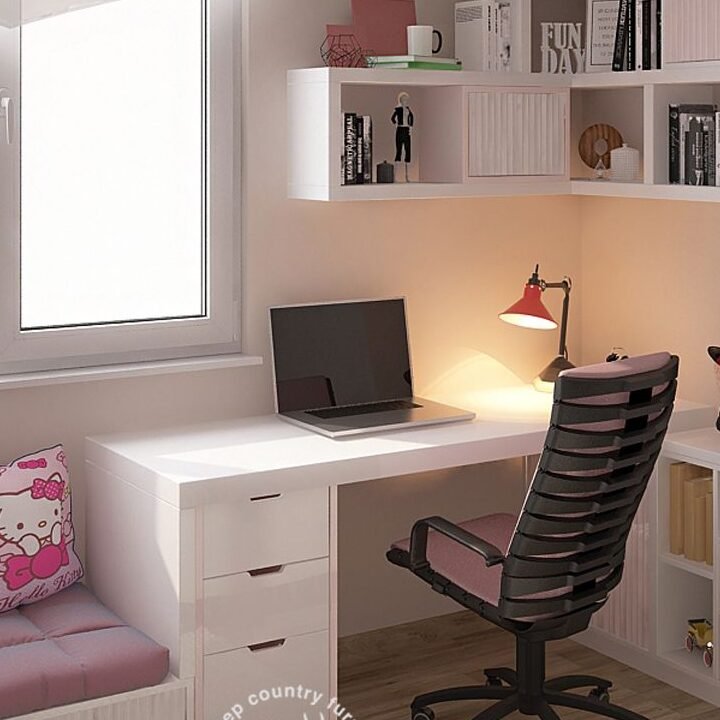
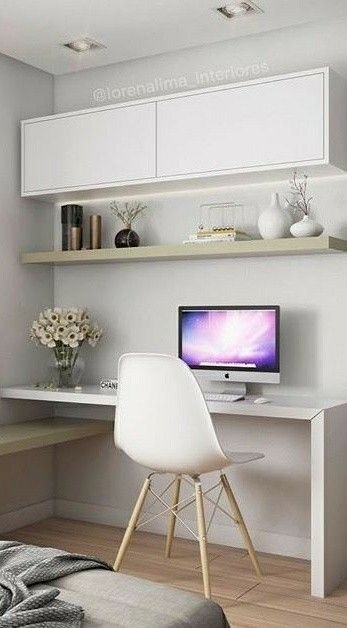
Maintaining a Clutter-Free Study Room
Maintaining a tidy study room requires consistency and conscious effort. Here are some key aspects to ensure your study stays in a tidy state:
Regular cleaning routines: Schedule regular blocks of time for cleaning, whether weekly or monthly. A consistent time frame helps prevent clutter before it accumulates.
Clean up immediately after use: Get in the habit of putting items back in their place immediately after you use them. Small, immediate actions will save you from having to deal with big clean-ups later.
Digital decluttering: Check your digital files and applications regularly. Delete unnecessary files, update folder structures, and keep your digital environment as tidy as your physical one.
Maintain an inspiring environment: Maintain the inspiring atmosphere of your study. Decorative elements, fresh flowers or personal items can help keep the space pleasant and motivating.
Develop habits: Incorporate tidying into your daily habits. When tidying becomes a natural routine, it becomes an effortless task that keeps your home office in order.
By consciously maintaining your tidy workspace, you not only promote an efficient work environment, but also help reduce stress and maintain positive energy in the room.
Conclusion
A tidy study is not only a place to work, but also a refuge of clarity and productivity. The time and attention you invest in organizing your home office will pay off in many ways. A tidy environment not only promotes efficiency, but also has positive effects on your mental state.
By putting the tips presented into practice and developing tidying habits, you will create a space that is not only aesthetically pleasing, but also serves as a source of inspiration. Your tidy home office will become a place where creativity flourishes, focus thrives, and productivity flourishes. Use these insights to optimize your home office and create a space that supports your full potential. Good luck in designing and maintaining your tidy work environment!
https://www.wikihow.com/Organize-Your-Small,-Heavily-Cluttered-Room

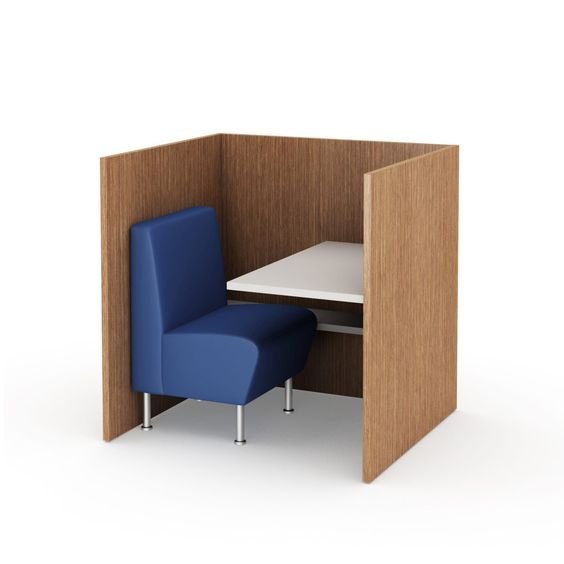
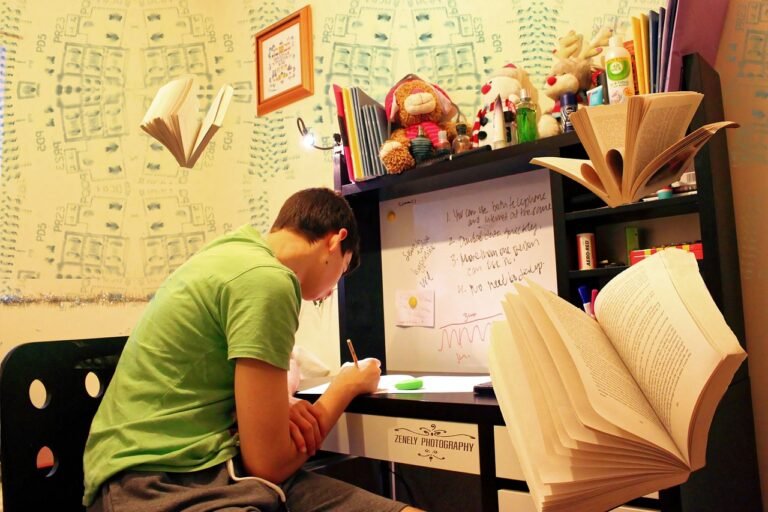

I love how you break down complex ideas into digestible pieces. Excellent writing!
Your article helped me a lot, is there any more related content? Thanks!
yes there is alot of more articles on the blog